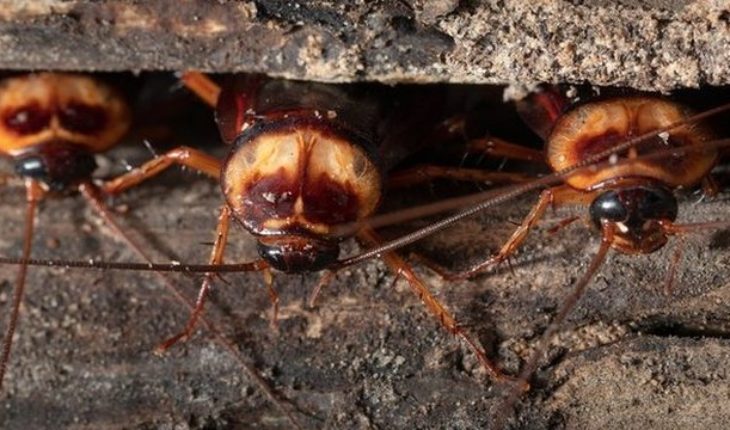Getty ImagesMuchas Butterfly populations are decreasing, according to the study. The news worries biologists from around the world.
A scientific analysis of the number of insects suggests that 40% of these animal species are experiencing “dramatic decline rates” around the world and can become extinct in coming decades.
Posted in late January in the journal Biological Conservation, research reviews 73 existing studies from different parts of the world, published in 13 years.
The global study said that bees, ants and beetles are disappearing at one rate eight times higher than mammals, birds or reptiles, and that a third of all insect species are now classified as endangered.
Meanwhile, the authors warn, it is likely that some species that are pests, such as the House flies and cockroaches, increase.
Some human intervention of the highlights of the study include the recent and rapid decrease of flying insects in Germany and the massive fall of insects in tropical forests in Puerto Rico, linked to the increase in global temperatures.
Getty ImagesLa research points out that the beetles are also threatened. Climate change is precisely one of the causes of the overall decline of the bugs, along with intensive farming and pesticides.
“The main factor is the loss of Habitat due to agricultural practices, urbanization and deforestation,” the lead author of the science article, Francisco Sánchez-Bayo, of the University of Sydney told the BBC.
“Secondly, the increased use of fertilizers and pesticides in agriculture around the world and pollution with chemicals of all kinds. Thirdly, we have factors biological, such as invasive species and pathogens; and fourthly, the climate change, especially in the tropics where it is known that it has a big impact”, adds.
Grave finds insects constitute the majority of the creatures that live in the Earth and provide key benefits to many other species, including humans.
They provide food for birds and small mammals, pollinate around 75% of the crop in the world, replenish nutrients in the soil and keep controlled some pests.
Getty ImagesLas cockroaches and flies home can proliferate in the coming years. Other experts, who were not involved in the research, argue that the findings are “seriously instructive”.
“It is not only about bees and pollination or human consumption, decreases also include beetles recycling waste and insects such as dragonflies which carry life to rivers and ponds,” says Matt Shardlow, of the British organisation Buglife.
“It’s becoming increasingly obvious that the ecological balance of our planet is breaking and intense and comprehensive effort is needed to stop and reverse these terrible tendencies. Allow the slow eradication of insect life to continue is not a rational choice”, he added.
Pests in increase the authors are concerned about the impact of the decline of insects along the food chain.
Like many birds, reptiles and fish depend on insects as their main source of food, it is likely that these species also disappear as a result.
While some of the most important insect species are in decline, the study points out that it is likely that a small number of species can adapt well to changing conditions.
Getty ImagesLa fly home is one of the toughest insects. Professor Dave Goulson, of the University of Sussex, United Kingdom, which did not participate in the research, said that some strong and adaptable, as the House flies and cockroaches, species seem able to live comfortably in an environment created by man and they have developed resistance to pesticides.
“The insect pests of rapid reproduction probably will flourish due to warmer conditions, because many of their natural enemies, which reproduce more slowly, will disappear”, says Hayes.
“It is likely that end up with a small number of vermin infestations, but to lose all the wonderful insects if we want, such as bees, butterflies and beetles that do a great job of disposing of animal waste,” says.
Slow replacement Hayes added that although the general message was alarming, there were things people could do, such as achieve its gardens were more friendly with the insects, not using pesticides and buy organic food.
It also needs much more research, since 99% of the reduction of insect evidence comes from Europe and North America, with almost nothing in Africa or South America.
Getty ImagesLos experts recommend our gardens be friendlier to insects. Ultimately, if a large number of insects is gone, they will be replaced, but it will take much, much time.
“If you look at what happened in the past major extinctions, generated massive Adaptive waves in which the few species that were able to adapt and deal with all the available niches and evolved into new species”, says Professor Goulson to the BBC.
“Wait a million years and I have no doubt that there will be across a variety of new creatures that will emerge to replace those that were eliminated in the 20th and 21st centuries,” he says.
“While that is not much consolation for our children”, regrets.
Now you can receive notifications of BBC News World. Download our app and activate them so you don’t miss our best content.
https://www.youtube.com/watch?v=MCmqUp2XTPY&t=98 https://www.youtube.com/watch?v=cqGT5wh5RE https://www.youtube.com/watch?v=oCQTnZrwxtE&t=116 thanks for reading! Help us to continue with our work. How? You can now subscribe to political Animal on Facebook. With your monthly donation, you will receive special content. Find out how to subscribe here. Check our list of frequently asked questions here.
translated from Spanish: Climate change leads to the plagues of flies and cockroaches
February 11, 2019 |





